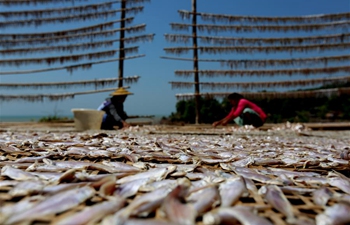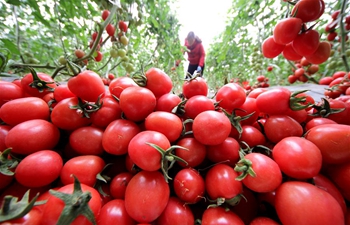NAIROBI, March 4 (Xinhua) -- Indigenous seed companies in the sub-Saharan African region have proved more adept at reaching out to small-holder farmers when compared to their multinational peers, says a study launched in Nairobi on Monday.
The Access to Seeds Index 2019 study that covered east and southern African region revealed that home grown companies boosted productivity at smallholder level thanks to timely supply of certified seeds and provision of extension services.
"The index reveals that seed companies are successfully serving smallholder farmers. They stand out because they integrate these small-holders in their business model," said Sanne Helderman, a senior researcher with the index study that is supported by Netherlands Government and Bill & Melinda Foundation.
More than 20 seed companies in east and southern Africa were evaluated during the survey which focused on critical areas like governance, transparency, marketing, research and development, intellectual property and leadership.
Kenyan-based East African Seed Company emerged the top in the survey followed by Seed Company whose headquarters are in South Africa thanks to their large network of extension workers coupled with better understanding of local crops.
"Two African seed companies at the top of the ranking is no surprise, given their deeper understanding of the region and the challenges smallholder farmers face," Helderman said.
She urged African governments to rollout policy and legislative incentives that are key to growth of a vibrant local seed industry that is responsive to the needs of small-scale farmers.
The study revealed that Kenya and South Africa are the leading hubs of production of high quality seeds thanks to advanced infrastructure, abundance of skilled labor and a vibrant agro-processing sector.
Jitu Shah, managing director of East African Seed Company Limited, said that government-industry linkages are crucial to increasing production of hybrid seeds and eliminating hunger and malnutrition affecting small-holder farmers in Africa.
"The private sector can support government funded research on improved varieties that our small-holder farmers require to achieve food security and become resilient to climate change," said Shah.
He said that state funded breeding programs should in the near future focus on tubers, vegetables and orphaned crops as opposed to maize in order to achieve food security and expand revenue streams for African smallholders.













